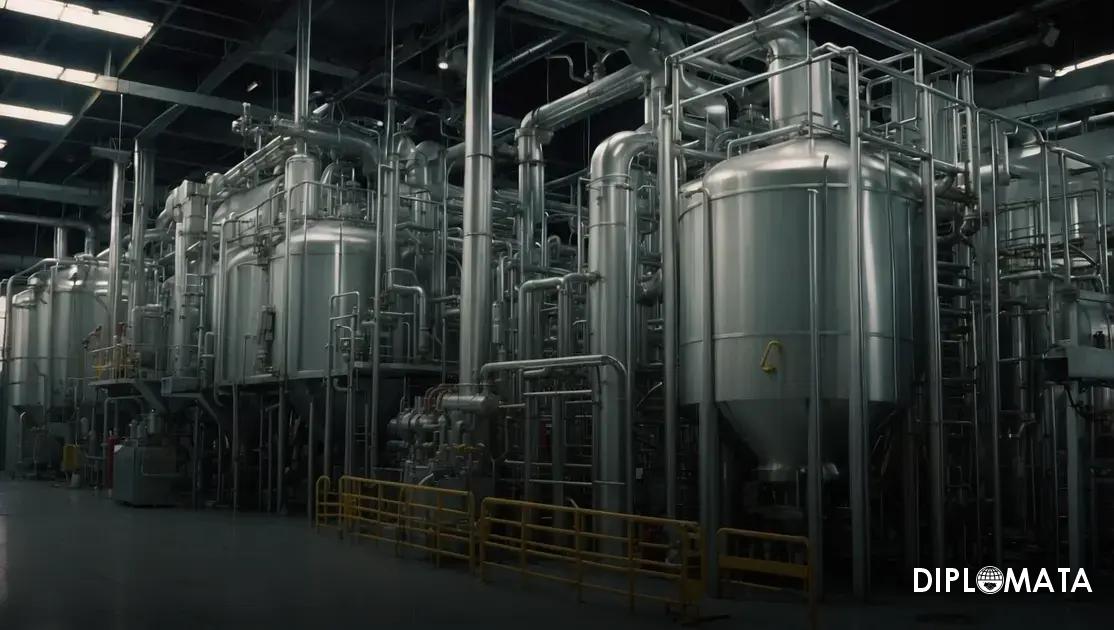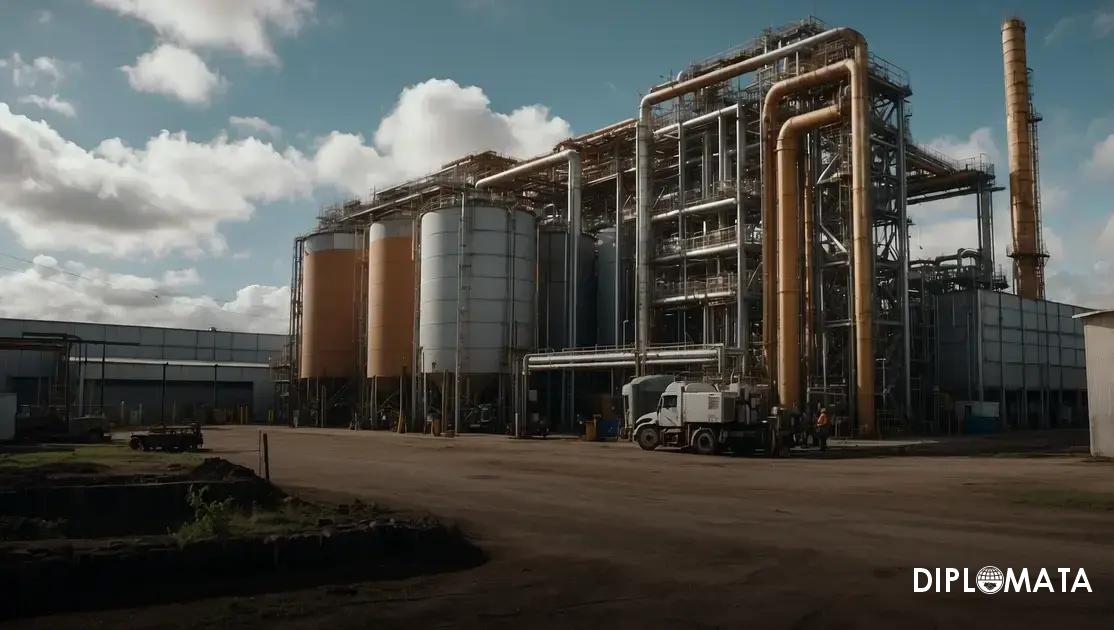What are the common quality issues in chemical manufacturing? They refer to various challenges that can affect the quality of chemical products, including contamination, inconsistent formulations, and equipment malfunctions.
What are the common quality issues in chemical manufacturing? This is a crucial question for companies in the chemicals sector. In this post, we will unveil the key challenges faced during the production process, providing insights that can help you avoid costly mistakes.
From contamination to equipment failures, understanding these issues will empower you to enhance your manufacturing quality and ensure compliance with industry standards. Join us as we explore these common pitfalls and offer practical solutions to elevate your production processes.

In the fast-paced world of chemical manufacturing, maintaining high quality standards is not just a regulatory requirement; it’s a crucial factor for success. With numerous chemical products being produced daily, quality issues can arise, leading to significant operational challenges. In this article, we will explore the common quality issues in chemical manufacturing and provide insights into how to effectively manage them.
Understanding Core Concepts in Chemical Quality Control
Quality control in the chemical manufacturing sector is founded on a few core principles. Understanding key terms such as Chemical Quality Control, quality assurance, and compliance is essential for identifying and addressing quality issues. Quality assurance ensures that products meet specified requirements, which is critical in avoiding costly recalls and maintaining customer trust.
The Significance of Quality in Chemical Production
Quality in chemical production has far-reaching implications. High standards of quality not only ensure safety but also compliance with regulatory frameworks. Moreover, they enhance customer satisfaction and operational efficiency. When quality is prioritized, companies can reduce waste, minimize errors, and improve their overall reputation in the market.
Evaluating Suppliers: Key Criteria for Quality Assurance
Choosing the right suppliers is vital for maintaining quality in chemical manufacturing. Here are essential criteria to consider when evaluating AMINES suppliers:
- Certification: Ensure that suppliers hold relevant certifications that demonstrate their commitment to quality.
- Production Processes: Review their manufacturing processes to confirm they adhere to industry standards.
- Quality Control Measures: Check if they implement robust quality control measures throughout the production cycle.
Step-by-Step Process to Identify Quality Issues
Identifying quality issues requires a systematic approach:
- Data Gathering: Collect data from various stages of the manufacturing process.
- Analysis: Analyze the data to spot trends or anomalies that indicate potential quality issues.
- Reporting: Document findings and share them with relevant stakeholders to address the issues.
Advanced Strategies for Quality Improvement in Chemicals
To enhance quality in chemical manufacturing, companies can adopt advanced strategies:
- Integrate innovative technologies such as automated quality control systems.
- Implement continuous improvement principles like Six Sigma to systematically reduce defects.
- Engage in regular training for employees to ensure they are aware of best practices in quality management.
Common Pitfalls in Quality Management and How to Avoid Them
In the realm of quality management, several common pitfalls can jeopardize production:
- Neglecting Regular Audits: Failing to conduct regular quality audits can allow small issues to escalate into major problems.
- Inadequate Training: Not providing sufficient training for staff on quality control processes can lead to human error.
- Poor Communication: Lack of communication between departments can result in misunderstandings and quality lapses.
By being aware of these pitfalls, companies can take proactive measures to mitigate risks and maintain high-quality standards.
Conclusion
Addressing common quality issues in chemical manufacturing is essential for ensuring safety, compliance, and customer satisfaction. By understanding the core concepts of quality control, evaluating suppliers carefully, and implementing advanced strategies for quality improvement, companies can enhance their manufacturing processes. Remember, quality is not just a goal; it’s an ongoing commitment that can lead to significant business success.
Our Expertise in Chemical Manufacturing
The content reflects our deep experience in the chemical market. With 20 years of expertise, specializing in Glycerin Manufacturing, proprietary manufacturing, and renowned supplier status, we position ourselves as a trusted source on What are the common quality issues in chemical manufacturing?.
Our Location: Av. Ipanema N° 165 – Empresarial 18 do Forte, Barueri – SP. CEP: 06472-002
Frequently Asked Questions
What are the common quality issues in chemical manufacturing?
Common quality issues in chemical manufacturing include contamination, improper mixing, equipment malfunctions, inadequate testing procedures, and poor raw material quality. These issues can lead to inconsistencies in product specifications, affecting safety and performance.
How can contamination occur during chemical manufacturing?
Contamination can occur through various means such as improper cleaning of equipment, cross-contamination from raw materials, or environmental factors. Even minor impurities can significantly impact the quality and safety of the final chemical products.
What role does equipment maintenance play in quality control?
Regular equipment maintenance is crucial for ensuring consistent product quality in chemical manufacturing. Malfunctioning machinery can lead to incorrect processing conditions, resulting in defects or variations in the final product, thereby compromising quality.
Why is testing important in chemical manufacturing?
Testing is vital in chemical manufacturing to ensure that products meet specified quality and safety standards. It helps identify potential issues early, confirms product consistency, and ensures compliance with regulatory requirements, ultimately protecting consumer safety.
What can be done to improve quality in chemical manufacturing?
To improve quality in chemical manufacturing, companies can implement rigorous quality control systems, invest in employee training, utilize advanced technology for monitoring processes, and conduct regular audits to identify areas for improvement.





